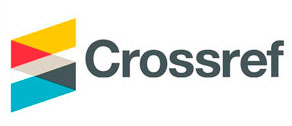Changing the paradigm of education development in Ukraine as a requirement of time
Abstract
The modern stage of the development of Ukraine is gaining the independence; the leading concept of Ukrainian society life is the modernization, the essence of which was to change the social life in an evolutionary way, transforming the basic foundations of Soviet society.
Modernization is considered as the self-development of capitalism, on the other hand, the modernization of the post-Soviet society, which is an industrial extension of the semi-feudal society of the Russian Empire with its characteristic features. That is, instead of the theory of a revolutionary break-up and a qualitative change in the whole system of social relations, the modernization of society was planned, which was not intended of modernization according to its basic principles.
This led to constant social upheaval, the formation of an oligarchic system of authority in Ukraine, and the periodic confrontation of authority with the people. This is particularly acute in the field of education and science, where the theory of modernization has had a significant impact and had certain objective preconditions.
The beginning of the 90s of the twentieth century characterized by a low level of education, which is connected to the deteriorating staffing of teachers and educators of higher education institutions, and a large number of private institutions.
For the Soviet system of education, the following features were specific: education was sufficiently adequate for an industrial, totalitarian, closed ideologized society, which led to a significant backlog of Soviet education, science and technology from the West. And technological lag influenced the development of science and education, because the latter largely depend on the level of development of production. Another harmful rudiment of the Soviet system of education is the use of the experience of Soviet teachers. In the country, the whole system of social relations, values, ideologues has radically changed, and in the system of education, the principles and methods of Soviet pedagogy continue to be imposed. Another problem of Soviet education is the very weak inclusion and interaction with the world educational process, with the achievements of world science.
For the transformation of national education, it is necessary to raise the prestige of the teacher, the educator, the scholar, effective interaction with the European and world educational space, financing innovative directions of education development and motivation of the creative personality.


